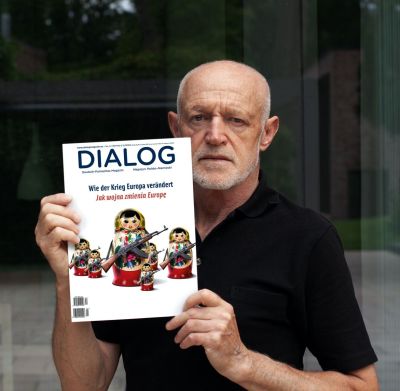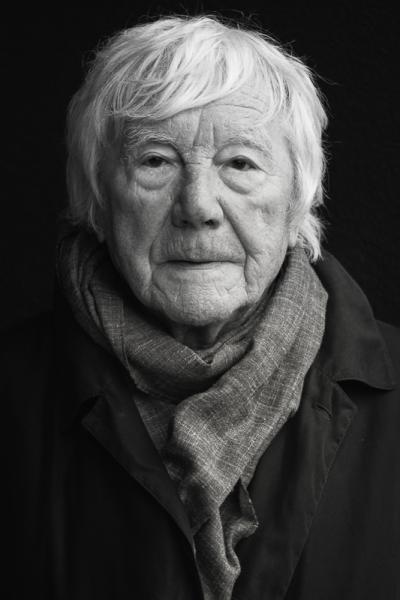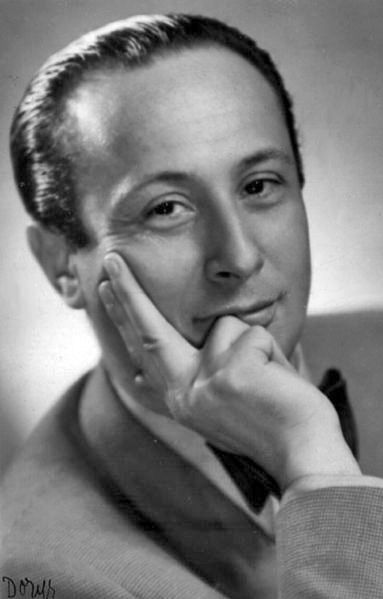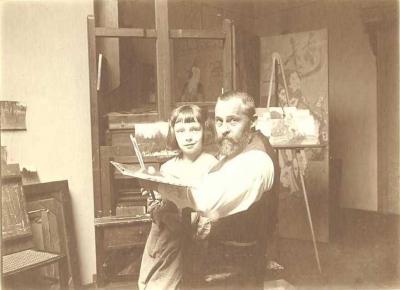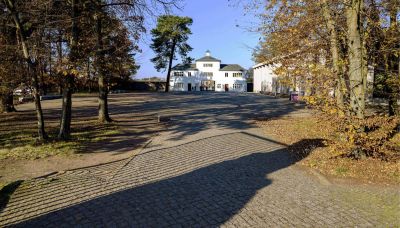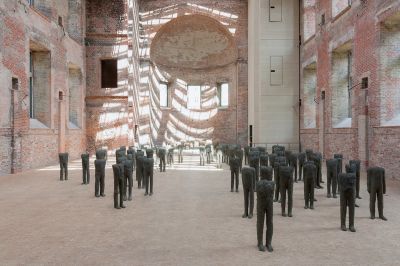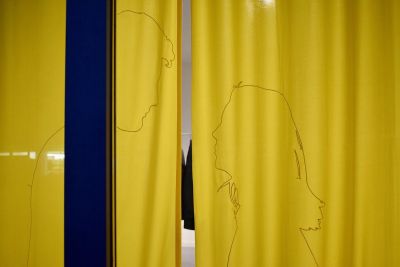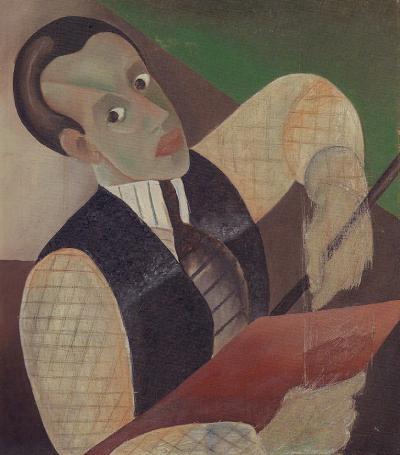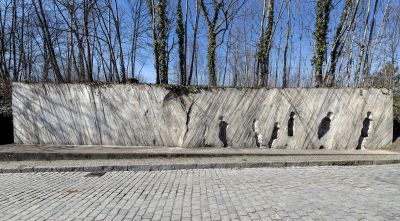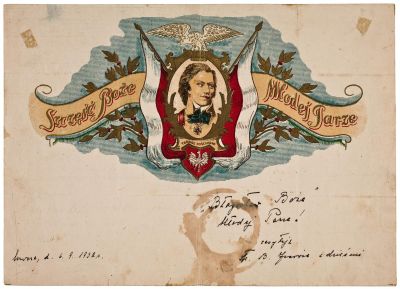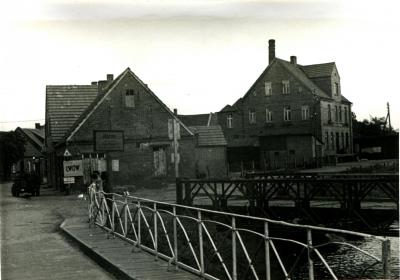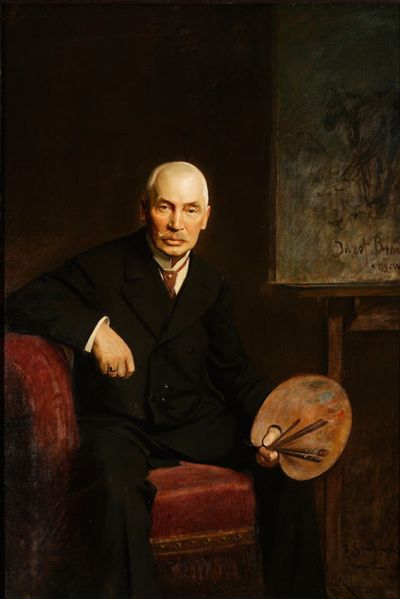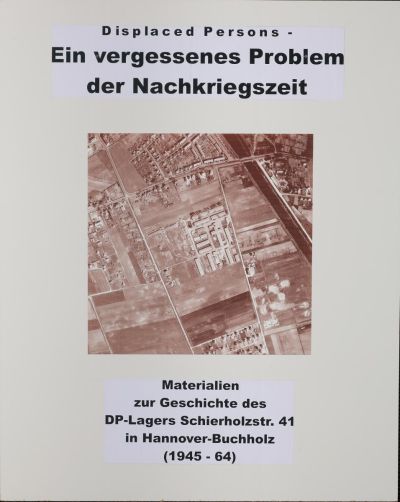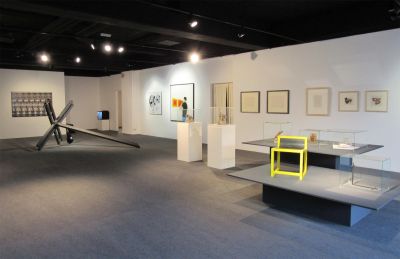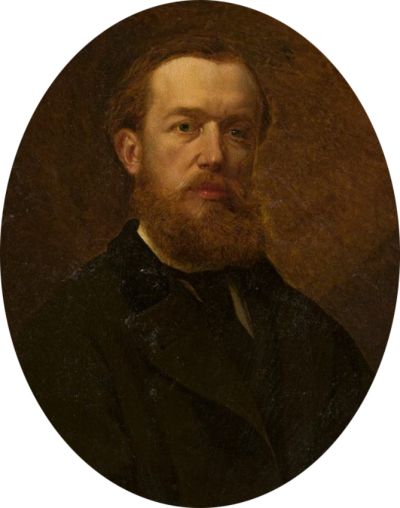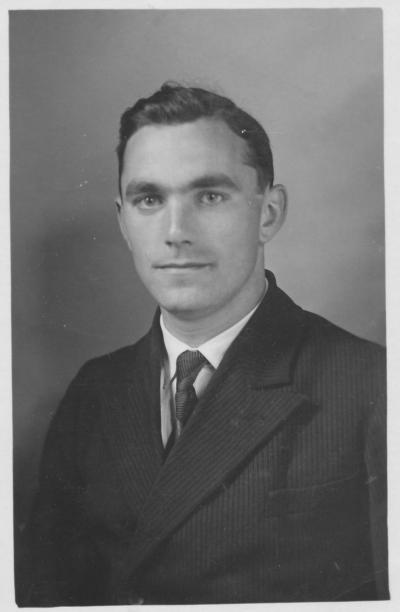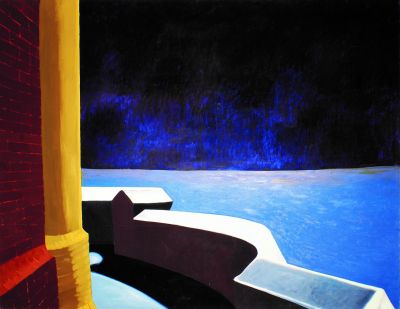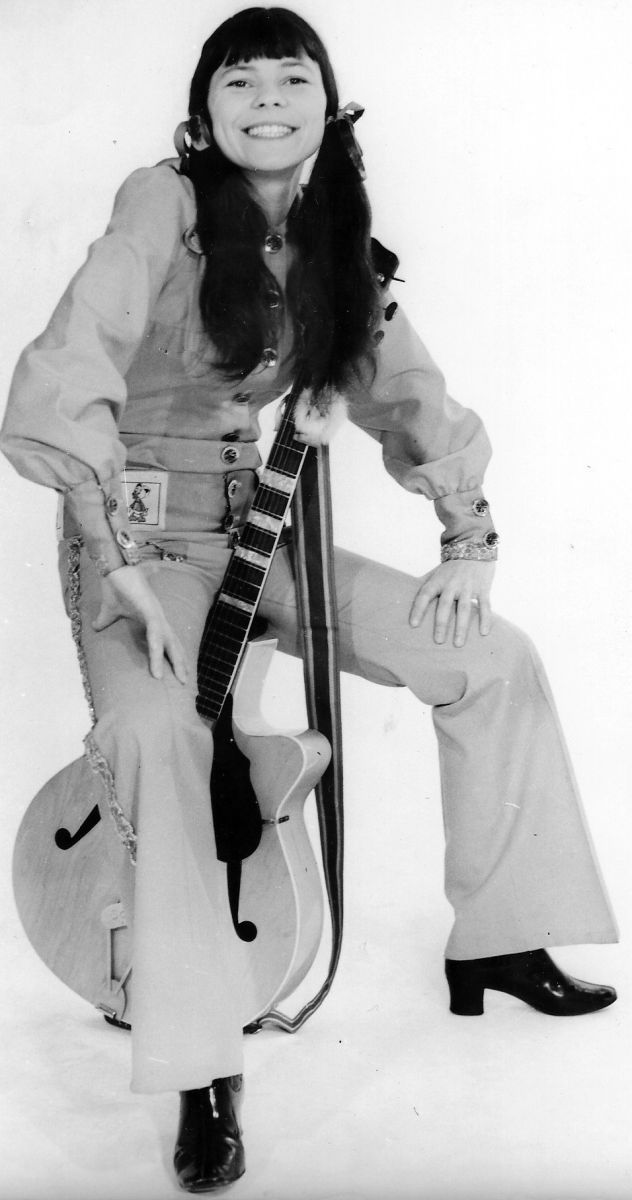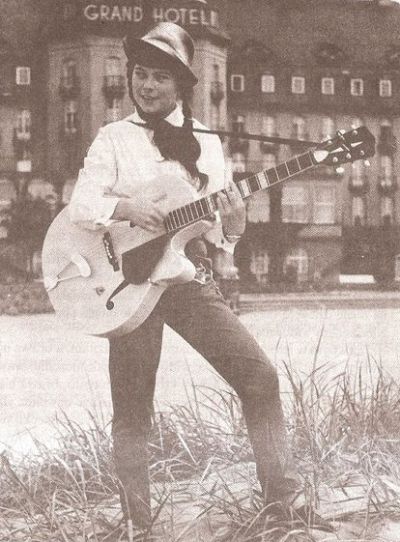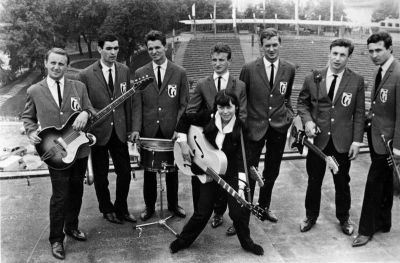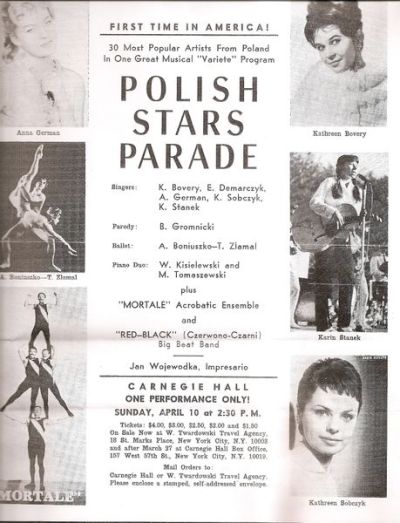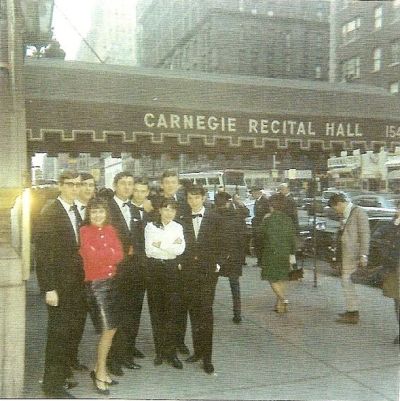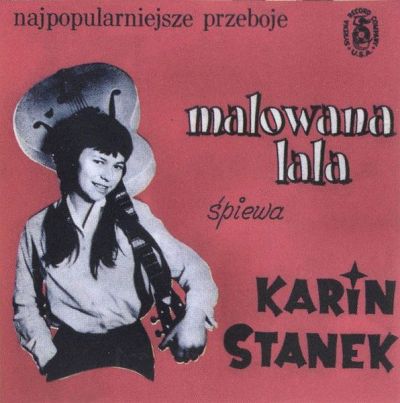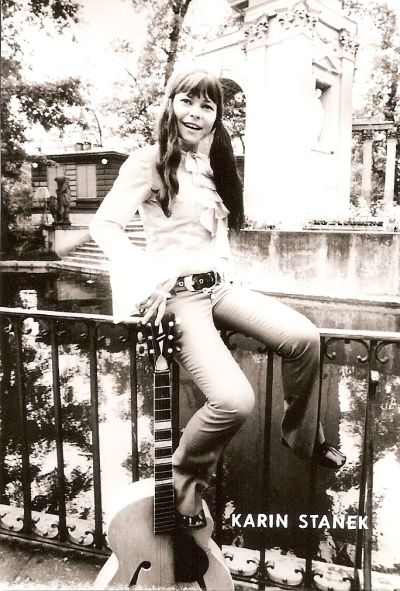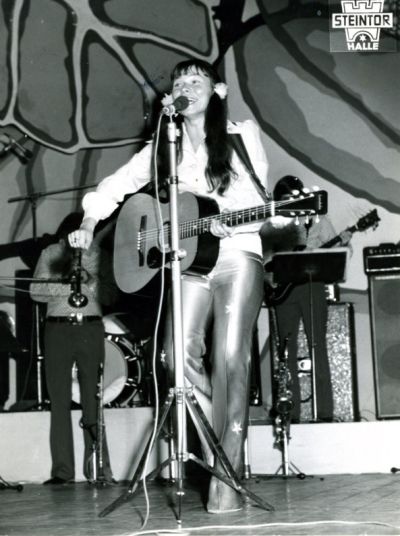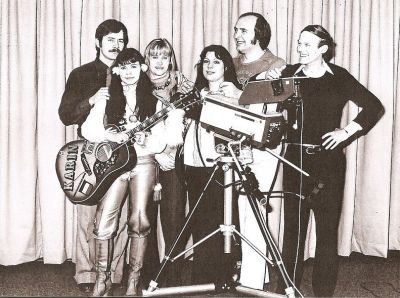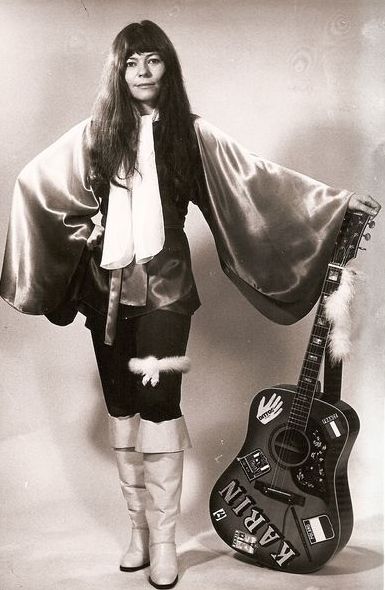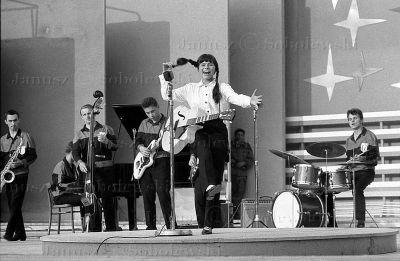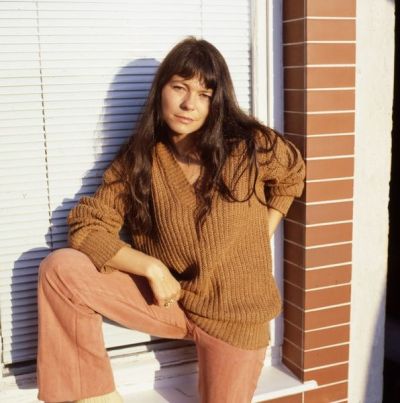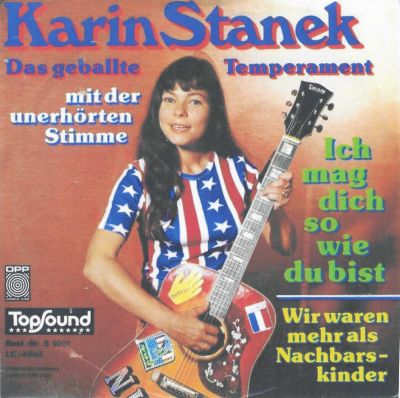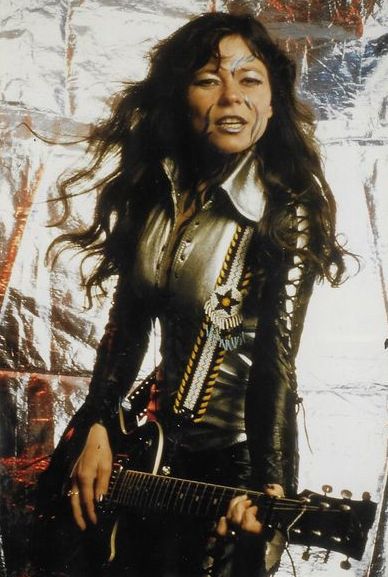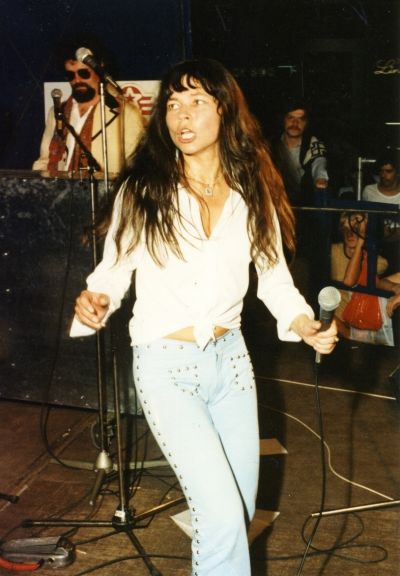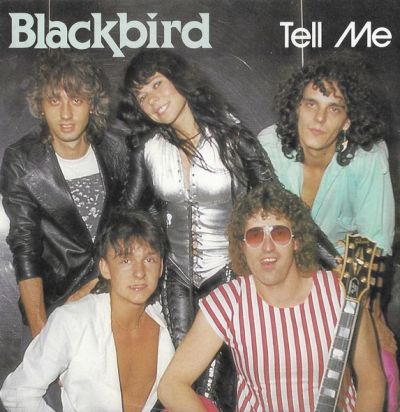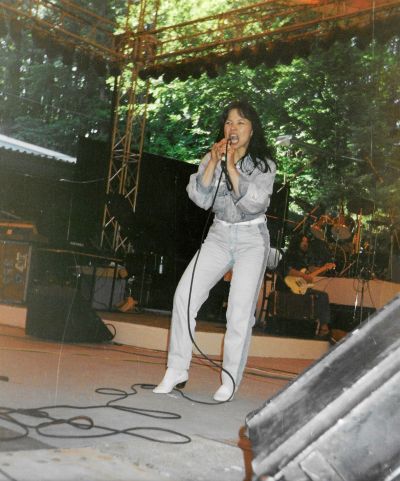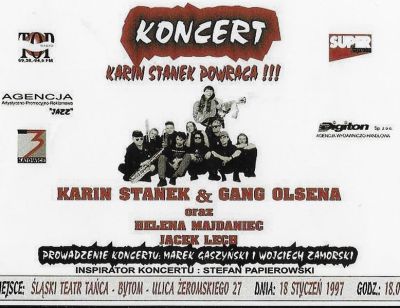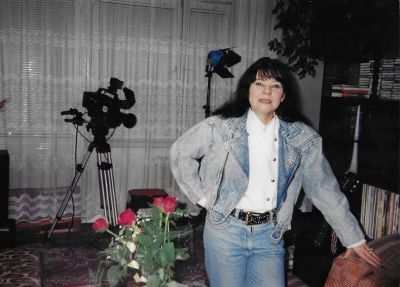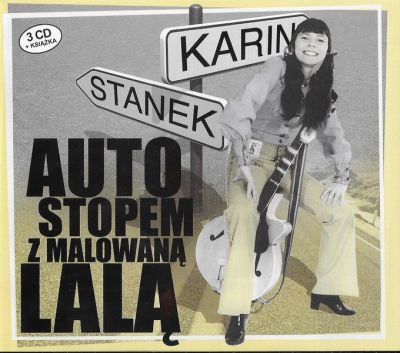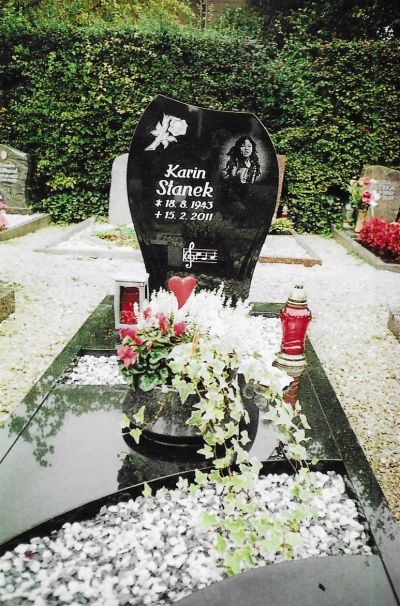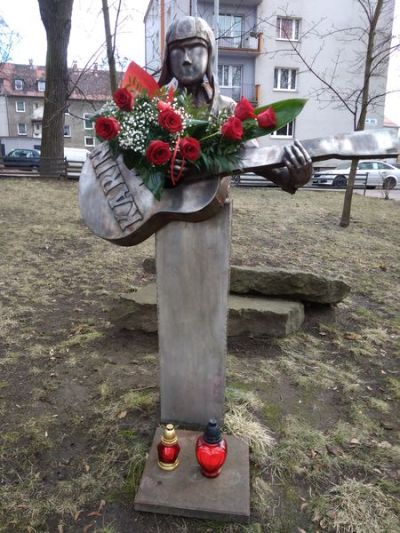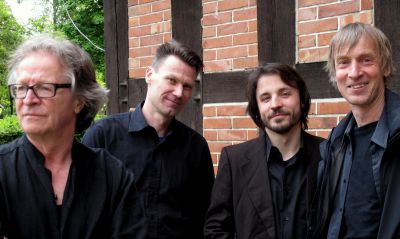Karin Stanek – The girl with the guitar
Mediathek Sorted

Childhood and youth
There are few people who have been as deeply impacted by the post-war years as Karin Stanek. She was born on 18 August 1943 in Beuthen (today: Bytom), the third of six children in a mining family. Her mother raised the children alone and the family lived in great poverty. Even as a young girl, Karin took on many of the household chores, and even though she liked to read books and enjoyed learning, she spent her free time cooking, washing and cleaning. The family’s financial situation meant that a higher school education was an impossibility, and she left her seven-grade primary school after completing her sixth year there. She then started working as a messenger in the Przedsiębiorstwo Robót Górniczych mining company in Bytom. She provided her mother with financial support – and also enrolled in evening classes.
Her first guitar was a present from her mother, who also taught her the first few chords. The young Karin had loved the instrument since she first saw it played by her uncle, whom she visited regularly. It quickly became clear that she was an extremely talented autodidact. Even so, she soon took up private lessons, which helped her further refine her guitar playing. She made contact with other musicians, youth clubs and culture venues. Intuitively, she felt that the guitar and her unique way of singing were the right form of expression for her. With the guitar in her hand, Karin already seemed to have no problem with stage fright or other self-confidence issues, and she quickly gained a foothold in the youth music scene in Upper Silesia. So it was that people began to recognize that the girl dancing around on stage with her guitar was Karin the young girl. She performed in clubs in Bytom, Szombierki and Miechowice, and played at the Bobrek black coal mine (formerly the Gräfin Johanna mine), as well as at parties and dance evenings. Her repertoire included popular songs and hits. Finally, she even gathered the courage to give a secret concert for her colleagues at work. Shortly afterwards, she gave an official performance at the Ministry for Energy and Mining (Ministerstwo Energetyki i Górnictwa) in Katowice.
The born entertainer
Karin Stanek felt magnetically drawn to the stage. The possibility of interacting with the audience was so exciting that she made enthusiastic use of it right from the start. Karin developed her performance image by trusting her intuition and remaining the same person on stage as she was off it. During the first few years, she twisted her long, dark hair into two plaits. Later, these became two side ponytails tied with a velvet ribbon, before she finally wore her hair open with a fringe. She didn’t use make-up for her performances, and almost always wore trousers. She remained an unpretentious girl with whom girls of the same age could identify very well. At the same time, she was an emancipated, independent young woman who sang about how her generation wanted to live – spontaneously and independently.
Due to the difficult financial situation at home, Karin Stanek never attended a regular music school. As an outsider in the music industry, there was only one route remaining to a career as a singer or musician: participation in competitions for young talent. She first decided to try her luck in March 1961, when she took part in a regional song competition organised by the Polskie Radio Katowice radio station. She needed to persuade the organisers to allow her to enter the competition in the first place, since participation was only allowed for people aged 18 and over. She was younger, and not only that, she looked like she was little more than a child. For her performance, she first sang the song “Diana”, then “Tutti frutti”, and won over the jury and the audience. She got through to the next round. For this stage of the competition, participants were asked to offer an interpretation of the same nostalgic song: “Śnimy się sobie co noc” (“We dream of each other every night”). Karin knew that this song did not fit in with her style, and withdrew from the competition.
In 1962, the next opportunity arose when the band Czerwono-Czarni (“the red and blacks”) announced that they were searching for new talent. Karin was persuaded by her boyfriend to apply for the first round in Silesia. With her performances, first in Zabrze and then in Kraków, the young singer landed a clear winner. Years later, she told her biographer and manager Anna Kryszkiewicz:
“The only [designated] accompanying instrument was the piano. However, I’d brought my guitar with me. When the members of the esteemed selection committee saw it, they smiled. They saw the flowers and stars that had been stuck on it, and the photos of Presley and Tommy Steel, and they found it amusing. For me, the guitar replaced the band; during a solo, I even used it as a drum. Of course, I sang ‘Hulla tutulla’. I forgot that I was wearing a skirt; I danced and ran around as though I was wearing trousers”.[1]
[1] Anna Kryszkiewicz: Karin Stanek. Autostopem z malowaną lalą, Warsaw 2015, p. 35.
Czerwono-Czarni
A few days later, the postman delivered a contract to Karin for participation in the Czerwono-Czarni concerts for one month. It was signed by the Szczecin-based events organiser, Estrada Szczecińska. The monthly fee was set at 2,000 zloty – three times the amount that Karin had been earning up to that point. A contract extension was also planned. In March 1962, Karin arrived in Sopot with her suitcase. At this point in time, following her participation in the competition in Kraków, she was already an idol for Polish young people. Years later, the press would write that she was the first, and for a long time the only, young female singer in Poland to have her own, original style. The journey to Czerwono-Czarni in Sopot was the first that she had ever taken alone. She quickly developed a rapport with her experienced fellow musicians and took their advice seriously. She particularly took their words to heart when they told her to drop her Silesian accent. As she explained later: “My music colleagues helped me with the right pronunciation, and sometimes they suggested a change in interpretation. I no longer felt alone”.[2] However, many fans felt that it was her Silesian accent and the “r” that she was unable to pronounce for any length of time, as well as her unusual vivacity, which lent her performances a particular charm. At any rate, from that time on, Karin was so popular that the band’s concerts sold out quickly. The audience went wild and besieged their dressing rooms after shows. Her contract was extended. Karin was conscientious: she shared her fee with her mother and remained unpretentious, taking care not to waste her money. The tour with Czerwono-Czarni took her to Warsaw and from there to the Gdańsk, Poznań, Wrocław and Lublin voivodeships. As time went on, she increasingly became one of the main figures of Polish beat music.
At the crest of fame
In June 1962, Karin’s photo appeared on the front page of the magazine “Przekrój”. This was followed by numerous interviews and articles in all the major press outlets in Poland. The song “Jimmy Joe” became her biggest hit, while “Tutti frutti” was the one most played on the national state radio station Polskie Radio. By the time she took part in the Festival of Young Talent in Szczecin in 1962, she was already a star. The cheering audience took her down off the stage and carried her through the city to her hotel. She left the festival with an invitation to take part in the International Song Festival in Sopot. She was not only the youngest participant in the festival, which was being held for only the second time, but was also already its secret star. She sang “Malowana Iala” (literally: “The Painted Doll”) and afterwards basked in the never-ending applause. She failed to win a prize, however. The self-made star of Big Beat had to make do with an honorary certificate and an invitation to take part in the concert by the musicians who won the prize. Around that time, Karin also appeared on TV for the first time. After the festival, the press wrote: “The sex beast travels to Helsinki”.
Karin Stanek really had been invited to Helsinki, to attend the World Festival of Youth and Students. She took part in a preparatory camp, but in the end, she was never allowed to make the journey. When the letter from the state artists’ agency Pagart arrived, she had already been given a passport, but was told that she would not be part of the group permitted to travel to Helsinki. Shortly afterwards, after one of the rehearsals, she was sought out by an unknown man from the state security service who requested that she hand over her passport without telling her why she wasn't allowed to travel to the festival. At this time, she did not yet know that in future, she would have to face more rejections for applications to travel abroad. The reason may have been Karin’s grandmother and sister, who were both already living in West Germany. In addition, those family members who had remained in Bytom had applied for permission to leave Poland due to their German origins. We can only speculate as to whether Karin Stanek’s exclusion from the festival may have been due to her German origins, which did not fit into the official narrative at the time, or whether she might have been considered a “bad role model” due to her lack of musical education.
At the end of 1962, Karin Stanek received a further offer to travel abroad. The well-known US impresario, Jan Wojewódka, invited her to join a concert tour in the United States. The journey had already been arranged when she again received a negative response from Pagart. Slowly, she began to get used to such refusals, as well as to her failure to win prizes at festivals – and not least, to her constantly growing popularity.
At the first Festival of Polish Song (Krajowy Festiwal Piosenki Polskiej) in Opole, which was held in 1963, she had more luck. There, she performed two songs that had been written especially for her. They included “Chłopiec z gitarą” (“The boy with the guitar”), a song that suited her perfectly. The audience went wild, and she won the jury award. That same year, “Fire Cracker Karin” (“atomowa Kaśka”), as she now came to be known, attended the festival in Sopot as a member of the audience. There, she was noticed by the director of the famous Paris Music Hall Olympia, Bruno Cocquatrix, but once again, she was denied permission to travel by the authorities. While others were allowed to make the journey to Paris, Karin toured Polish towns and cities and took part in the second festival in Opole. There, she played her next hits, including “Jedziemy autostopem” (“We hitch a ride”), “Karolinka” and “Motor i ja” (“Me and my motorbike”). “Jedziemy autostopem” won a special prize, and Karin was finally presented with an award.
Tours in the “sister states”
After her performances in Sopot and Opole, Pagart sent Karin on tour, albeit only to neighbouring socialist countries. The GDR tour was a success. The young East Germans went crazy over Karin’s dynamic songs. In her concerts, she played her big hits, alongside songs in English, such as Brenda Lee’s “Dynamite”.
She later recalled: “I appeared in a lot of TV programmes, including in Rostock, Magdeburg, Leipzig, Berlin, Suhl and Dresden. In the programmes, I usually sang Polish songs, but with a German text. Sometimes the Germans sent me a tape with the text of their song. I’d learn it by heart and then travel to the TV station”.[3]
In 1965, Karin Stanek took part in her only festival abroad. It was the fourth International Pop Festival for the Baltic Sea countries in Rostock, in the GDR. There, she was one of the three prizewinners. One year earlier, in 1964, she had completed a successful tour through Czechoslovakia.
As she later told her biographer and manager Anna Kryszkiewicz: “I enjoyed performing to Czech audiences, since they responded spontaneously and very actively to my requests that we have fun together. To give my fans there a nice surprise, for the second tour, I prepared ‘Jedziemy autostopem’ with a text in Czech. Of course, the applause came as soon as they heard the first words in their own language”.[4]
In 1968, she joined Czerwono-Czarni on a concert tour through the USSR. The Russian audiences particularly loved the song “Walentyna twist”.
[2] Anna Kryszkiewicz: Karin Stanek..., p. 47.
[3] Anna Kryszkiewicz: Karin Stanek..., p. 115.
[4] Anna Kryszkiewicz: Karin Stanek..., p. 128.
A thirst for knowledge
Despite her fame, Karin never forgot her wish to receive an education. She enrolled in the eighth grade of the long-distance grammar school in Szczecin. However, she soon realised that the singing exam before the state committee, which consisted of a theoretical and a practical part, took priority. She interrupted her studies at the grammar school for one year – and from that time on took a bag of music theory books with her to her performances.
Years later, she remembered: “It was the time at which the authorities were very keen to ban beat music. They were of the opinion that it had a demoralising effect on young people, and that it should under no circumstances be brought into circulation. I was therefore aware of how I would be treated at the exam. If I failed to pass it, I would no longer be able to sing professionally in Poland, and all my plans would have been for nothing”.[5]
She passed the exam. However, since she did not have a grammar school leaving certificate, she had to repeat the entire process two years later. It was not until then that she received her singing diploma, which meant higher royalties. From that time on, she received 350 zloty for each concert.
In 1969, she got an even better deal. She was classed as a Category A singer, which meant that she could demand a fee of 500 zloty per concert. However, this led to disagreements with Czerwono-Czarni. Finally, Karin left the band. After obtaining her diploma, she continued her education at the grammar school, while at the same time performing 30 or 40 concerts every month. Every free minute during the tour, she studied and did homework, and on her days off, she travelled to Szczecin to take private lessons. Her biggest problem was coordinating her exams with her concert dates. It wasn’t unusual for her to play a concert somewhere in Poland during the evening, and to spend the night that followed on the train on the way to an exam. At that time, she also toured the USSR, where she obtained special permission from the Embassy of the People's Republic of Poland to return to Szczecin to attend exams. She passed her school leaving exams with excellent results.
America
At the end of 1966, Karin was finally allowed to accompany Czerwono-Czarni on a tour in the US. She had again been invited by Jan Wojewódka. This time, the US impresario remained adamant that the band would only be invited together with Karin Stanek as the solo singer. At the same time, the band’s manager had to sign a declaration of commitment, which stated that Karin Stanek would return to Poland. On the journey to the States, they were joined by other famous Polish-language singers, including Anna German, Kasia Sobczyk and Ewa Demarczyk. After a long sea journey on the MS Batory, the first concert was held in the New England Hall in Boston. Karin also sang the song “Tato, kup mi dżinsy” (“Daddy, buy me jeans”). It went down a storm with the local audience. One additional effect was that she received a large number of gifts from the Americans. As a joke, they sent her packages with jeans after they found out what the words to the song meant. After the “Polish Stars Parade” concert in the famous Carnegie Hall in New York, the Hungarian operetta singer and actress Marta Eggerth approached Karin Stanek in person and told her: “Kid, you’ve got the chance to have an international career. Think about it”. During the tour, Stanek received a series of offers for more concerts in the US and Canada, and for collaborations with American bands. However, she always said “no”. In the run-up to a concert in Chicago, the US-based Siren Record Company gave her the biggest gift of all: it produced a large number of long-player records, which her fans could hold out for her to sign. During her long period of stay in the US, several of her fans became close friends. Some of them fell in love with her and even proposed marriage to her. However, she remained true to her word and returned to Poland – to her mother, her siblings and her fans.
Solo career
The separation from Czerwono-Czarni marked a turning point in Karin Stanek’s career. It was a courageous decision, considering the fact that up until that point, her band colleagues had composed most of her songs, and she had recorded the albums “Czerwono-Czarni” and “17 000 000” together with them. At a music festival in Międzyzdroje in the summer of 1969, there was a major dispute between Karin and the band. The musicians were appalled at the fact that Karin, who had been classified by the Ministry as an “A-artist”, received the largest fee of them all. Karin left the band after seven years’ collaboration. They played their last concert together on 3 August 1969 in Świnoujście.
For Karin, her new journey began with a collaboration with the Czech band The Samuels. With them, she developed a new programme and performed a large number of concerts. However, she and the Czech musicians did not have any useful contacts in Polish television. In March 1970, Karin Stanek decided to go it alone without her own band, and took on all the organisational work herself – a highly risky step in the world of showbusiness. She would soon find this out the hard way. In the Polish press, she was met with a wave of derision; today, we would call it “hate”. During this time, she enquired at the Polish music label Polskie Nagrania about producing a new record. Their answer was: her songs weren’t really that good. Fortunately, as fate would have it, soon afterwards, the manager Anna Kryszkiewicz came to her aid, who would remain loyal to her to the end.
[5] Anna Kryszkiewicz: Karin Stanek..., p. 91.
A brief comeback
In 1974, after a long tour through the USSR, thanks to the efforts of her manager, Karin received an invitation to perform at the first Polish Stage Fair (Polskie Targi Estradowe) together with the band Schemat. In addition, Anna Kryszkiewicz succeeded in organising recordings of songs by the local radio station, Radio Poznań. For her client, these were the first radio recordings for years. Karin recorded four new songs, which would later only be played on the radio a few times. Her participation at the fair also didn’t go well. Her first performance was right at the beginning of the evening, when the audience were still looking for their seats. Under these circumstances, it was impossible to interact and receive feedback. Her second concert was scheduled for just before midnight, when the young audience had already gone home. She also had similar bad luck when she took part in the 1974 Song Festival in Opole. What in her mind was a successful, enthusiastically received performance was, to her surprise, excluded entirely from the television broadcast. Furthermore, the press reviews were also not exactly flattering.
“The only positive review of the festival was published in the GDR. After I returned from Opole, I decided once and for all that this would be my last performance at such an event. There was no point in making the effort. I received nothing but trouble for my work. What was the point of it all?”[6]
In the period that followed, Stanek focused on performances outside Poland. In 1975, she was invited to around 110 concerts abroad. In 1976, she was even offered 120 gigs in Dresden. Yet before she was about to start work with the event organiser in the GDR, it emerged that she did not have permission from the Polish agency Pagart. The opportunity to give concerts in East Germany for a whole year was lost.
Western Europe and the US
In December 1976, Karin Stanek performed concerts in Vienna, where she was well received. During her stay there, she had the opportunity to meet her mother, who had travelled from the Federal Republic of Germany, where she now lived. She would later regard this meeting as a traumatic experience. Her mother urged her to remain in the West and to join the family in West Germany. However, Karin was convinced that she belonged in Poland, since she could develop musically there. And in fact, on her return, there was indeed a positive development. She was invited to participate in recordings at the television studios near Wrocław. Her old contacts with East Berlin were also revived. In March 1976, she recorded two of her own compositions in German for the state radio broadcaster; shortly afterwards, they went on air. Her manager Anna also made sure that her contacts with the West were kept alive. She was again invited to perform in Vienna. As soon as she arrived, she travelled directly from the airport to the recording studio. The recordings, and the concert in Vienna, were a success.
As Karin recalled in her biography: “The impresario who invited me to the concert was the head of an artists’ agency. Finally, I’d found the right person. He was also a well-known composer. He signed a contract with me and his agency committed itself to managing [my] concerts and recordings. I was scheduled to make my first record in the autumn”.[7]
A few days later, the impresario sent her to Frankfurt/Main to perform concerts there. In Frankfurt, a manager suggested that she make a record. Again, Karin’s mother came and tried to persuade her to remain in the West. However, as always, she returned to Poland. There, a contract was waiting for her for concerts in Chicago, and she succeeded in persuading the Pagart agency to allow her to go. In the autumn of 1976, after ten years away, Karin again performed in the US. She extended her period of stay, and for seven months, she gave concerts in Chicago and New Jersey. Shortly before her departure, she was invited onto the “Joe Franklin Show”, which was shown on all US channels. On the show, she performed her song “Chocolate cream” (Czekoladowy krem). After the show was broadcast, Karin was showered with invitations to US clubs and was contacted by a large number of entertainers. However, she rigorously rejected all offers, since she was soon due to make the recordings in Frankfurt, as already agreed. In her biography, she admits that: “This was probably the biggest mistake I ever made in my career. How could I have said no to offers like those? I didn’t fully understand what I had done until years later”.[8]
Emigration to the West
Karin Stanek’s emigration to West Germany occurred in two stages. In 1976, following her return from the US, she initially lived only in West Germany. In terms of her work, there were several developments during this time. Her manager, Anna Kryszkiewicz, who was living in Cologne at the time, did her best to get Karin Stanek’s career up and running again. Thanks to her permission to reside in Germany, Karin was not cut off from her homeland. She was in a position to accept any invitation to perform in Poland and to travel there. She would only submit an application for recognition as an ethnic German repatriate years later, at a point in time when the political situation in Poland became worse. Her status as an ethnic German repatriate not only meant that she had German documents, but also gave her the right to further education and any state assistance that might be required.
But let’s return to 1976. On her return from the States, Karin Stanek was met at Frankfurt Airport like a star. Directly after her arrival, a 45-minute film was recorded with her, which was followed by performances in two discotheques. She recorded two songs for the Phonogram label, including a German version of her own composition “Proszę, nie płacz już” (“Please don’t cry”). The German press compared Karin Stanek to Elvis Presley; for some journalists, she was the Polish “Lady of Rock”. Again, she was called up by US impresarios who offered her concerts in the States. During that time, Karin and her manager discovered just how big the discrepancy was between her royalties and the fee paid to the German impresario. To add to that, the recording project he had promised got stalled. Karin withdrew from the contract.
At the same time, she travelled to Lyon in France to play concerts, which were also huge successes. The French journalists compared her with Janis Joplin. However, she rejected an offer of a monthly contract with a well-known Lyon club, which was made after her first performances. She had commitments in Germany, where she had an agreement to make a record with twelve songs. After spending three days in the studio and waiting for a week, she finally received a music cassette and a single. She sang the title song multiple times on German television, on programmes including the popular music show “Disco” on the national ZDF channel, presented by Udo Jürgens. For quite a while, her songs were high up in the radio and disco charts. She kept her connections to Poland alive through her manager. She feared that if she travelled to Poland herself, she would not be able to return to Germany. At that time, the passports of Polish citizens were kept in storage by the passport authority, and were only handed out for the period of the person’s journey – if it was decided that the journey would be allowed. From 1976–1981, Karin had her residency permit for Germany extended every year.
During this period, she performed in Germany many times. There, she was of course not as well known as she was in Poland. When she received an offer to make a record in English, she agreed to the change of image that this would entail. From then on, she became known in Germany as Baby Gun; later, she renamed herself “Cory Gun”. She changed her stage image and became a stylish rock-n’-roll lady with wild hair and a tight leather outfit. Karin Stanek, alias Cory Gun, promoted her record, “Let’s have a party”, on several television shows, and for several weeks, the title song enjoyed a place in the radio and disco charts. For an artist who had only recently arrived from a country behind the Iron Curtain, this was a not insignificant success. At the same time, she took another important step: she entered compositions to a US competition in Hollywood for writers and composers. In 1978, her song “Wierny wiatr” (“Loyal wind”) came in third; in 1979, “Proszę, nie płacz już” (“Please don’t cry”) reached fourth place.
[6] Anna Kryszkiewicz: Karin Stanek..., p. 211.
[7] Anna Kryszkiewicz: Karin Stanek..., p. 218.
[8] Anna Kryszkiewicz: Karin Stanek..., p. 228.
Emigration to Germany
Karin Stanek’s decision to apply for German citizenship was influenced by several factors. In December 1981, martial law was imposed in Poland. This had a particularly devastating impact on her manager, Anna Kryszkiewicz, who until then had travelled to Poland once a month to visit her ill mother. When she received news of her mother’s death in January 1982, she immediately travelled to her home city of Łódź, where she remained trapped. A short time before, Karin, under the guidance of her manager, had made the new record “Tell me”. However, under the present circumstances, without Anna’s supervision, any publicity for the launch appeared impossible. “Cory Gun” had to cancel her performances and tours. Unable to perform, she had no way of supporting herself financially. It was then that she decided to apply for status as an ethnic German repatriate. She travelled from Cologne to her mother in Wolfenbüttel, immediately registered with the authorities there, and joined a German language class. Several months later, Anna Kryszkiewicz had returned to Germany, but Karin’s new obligations put too many restrictions on her time. Together with her manager, she decided to temporarily pause her musical activities. However, soon afterwards, she met a German musician, a certain “Manfred”, who it was decided would manage her performances in the local area from that time on. For her part, Anna would take care of the television contacts. Karin Stanek again accepted an invitation to spend several months in the US, and performed in Chicago. She then worked as a singer on cruise ships. However, when she registered with a German artists’ agency and received an offer from them of singing in simple restaurants, she categorically refused.
Under these circumstances, the knowledge-hungry Karin decided to study Computer Science, which in the late 1980s and early 1990s was a completely new line of work. She finished her degree and even completed an in-house traineeship, but she would never work in the field. In her personal life, Karin Stanek had no luck in Germany. After many years in a relationship with a married man, she broke it off after pressure from the family. She lived alone in Wolfenbüttel in a three-room apartment, which with its white furniture and pastel decorations looked rather like an American home.
In her biography, which was subsequently extended with a chapter on Germany, she is quoted as saying the following:
“Many years have gone by in Germany. There have been ups and downs; my life was not always easy; I had to change; I often had to make compromises, give something up. That’s how life abroad is, and I have found my way of dealing with it. Somewhere in the depth of my being there is a trace of melancholy. Melancholy for something that has been lost. After all, even though I’m not unhappy here, I am still a foreigner. This is not my home”.[9]
Visits in Poland
It would be 15 years after Karin Stanek left Poland in 1976 before she would decide to perform as an artist again in front of a Polish audience. After the change to the system there in 1989, travelling home no longer presented a risk. When in 1991, Stanek was invited by Franciszek Walicki and the artists’ agency Bałtycka Agencja Artystyczna “BART” to take part in the concert “It’s only rock and roll – three decades of rock in Poland” (To tylko rock and roll – trzy dekady rocka w Polsce), she decided to accept. It was her first trip home after one-and-a-half decades. She set out on the journey with her mother, and was also accompanied by her manager Anna Kryszkiewicz and her partner. Karin saw her old colleagues again after many years. The atmosphere at the rehearsals before the concert was very relaxed and familiar; yet despite this, and her professionalism notwithstanding, her stage fright grew to enormous proportions. Finally, when she found herself standing on the stage in Sopot, she was so moved that she had to first collect herself. Big tears fell down her face, and the audience cried with her. Several minutes passed before Karin was able to play. Her performance of “Jimmy Joe” held the hall transfixed. The concert was just as powerful as it had been in the old days, and the audience listened to her spellbound. After the final encore, they bid her farewell with a standing ovation. This time, the press reviews were extremely positive. The local newspaper, “Głos Wybrzeża” (“Voice of the coast”), had this to say: “The biggest surprise was the performance by Karin Stanek ... Her vivacity and her unique way of moving delighted the audience. Like a teenager, full of energy and temperament, she put on a short, but wonderful show and proved that she is still the same ‘Fire Cracker’ Karin as before”.[10]
After this concert, Karin again accepted an invitation to Chicago. Her six-month tour from late 1991 to early 1992 took her from Chicago to New Jersey, and from there to New York and Toronto, before ending in Sarasota in Florida.
In 1992, she again appeared on the “forest stage” in Sopot, this time with a concert to mark her 30th anniversary as a stage performer. On stage, she was a pure bundle of energy. In the years that followed, she travelled occasionally to Poland to play concerts there. She nearly always travelled by car, each time accompanied by her manager Anna. At the same time, she returned to the stage in Germany, where she sang songs in German and English as “Cory Gun”. However, on the return journeys to Wolfenbüttel, back to Karin’s everyday life away from showbusiness, the musician didn't strike her manager as particularly happy.
Karin Stanek celebrated her 35th anniversary on stage with a concert in her home town of Bytom, which was initiated by Stefan Papierowski, a loyal fan of many years. Together with the Silesian rock and blues band Gang Olsena, she performed an energy-charged concert on the stage of the Silesian dance theatre (Śląski Teatr Tańca), now the culture centre in Bytom (Bytomskie Centrum Kultury). To mark this anniversary, the regional television studio in Katowice recorded a documentary with the rededicated title “Tato, kup mi polskie dżinsy” (“Daddy, buy me a pair of Polish jeans”). A year later, in 1998 Karin Stanek again performed in Bytom, this time on the stage in the town park. In 2004, with the band Gang Olsena, she participated in the concert to mark the town’s 750th anniversary.
Another concert where she played to a Polish audience alongside many other megastars was on Piłsudski square in Warsaw for New Year’s Eve 2000. In 2003, her manager, Anna Kryszkiewicz, returned to Poland for good. As a result, she was no longer able to drive Karin to the concerts and back home again. For Karin, this meant travelling with her guitar and other luggage, which became increasingly problematic. She still received a large number of invitations to Poland, but was soon no longer able to accept them. She appeared in Poland for the last time in 2005, in Szczecin.
From 2007 onwards, her state of health declined significantly. She no longer accepted any invitations, and became increasingly reclusive. At that time, she maintained intensive contact with her mother, who lived a few streets away. In 2011, she was taken to hospital due to acute pneumonia. Her body, which was already weakened from previous illnesses, was no longer able to cope. Karin Stanek died on 15 February 2011, at seven in the morning. On 19 February, she was buried in the Catholic cemetery in Wolfenbüttel.
[9] Anna Kryszkiewicz: Karin Stanek..., p. 236.
[10] “Głos Wybrzeża”, 8 July 1991.
A permanent memento
Anna Kryszkiewicz, Karin Stanek’s untiring manager, and Karin’s loyal fans, still keep the memory of the “Queen of Polish beat music” alive today. One particular contribution was made by Stefan Papierowski. He and Karin Stanek were friends. She met him several times and kept in touch by letter. She described him as her “biggest, most loyal fan in Poland”, and gave him a series of personal mementoes, including her guitar and stage costumes. Stefan Papierowski, as well as being Karin's “most loyal fan”, also organised special exhibitions, gave interviews and visited schools in Silesia to tell the young pupils about Karin Stanek’s decisiveness and talent. In his mind, all of these items could later be used as the basis for a permanent exhibition or a place of remembrance for Karin Stanek.
The actress and singer Arleta gave a series of concerts in different venues in Poland together with the Acoustic Warsaw Band, at which she sang Karin Stanek’s greatest hits to great acclaim. For her part, Anna Kryszkiewicz produced and published a triple CD album, “Karin Stanek – Autostopem z malowaną lalą” (“Karin Stanek – hitch-hiking with the painted doll”). In memory of Karin Stanek, the town of Bytom renamed the square in front of the local culture centre after her and erected a memorial plaque dedicated to her there.
In addition, for two years, the “League of non-indifferent women” (Liga Kobiet Nieobojętnych) from Bytom collected money to enable a statue to be built in honour of Karin Stanek. In 2013 to mark the occasion of the 70th birthday of the charismatic singer from Silesia, the statue was unveiled in front of the culture centre in Bytom. The statue was created by the sculptor Jacek Wichrowski.
In 2011, shortly before Karin's death, Anna Kryszkiewicz unveiled the Karin Stanek star in the walk of fame in Opole. And in Szczecin, where she won the first Festival of Young Talent in 1962, Stefan Papierowski unveiled a start with her autograph in the walk of fame there, in the garden of the Villa Sorrento.
Alina Moś-Kerger, a theatre director from Katowice, wrote a moving monodrama about Karin Stanek. The singer was played by actress Agnieszka Wajs, while the music was provided by Piotr Górka, a well-known musician in Silesia.
Anna Kryszkiewicz paid homage to her friend, with whom she worked for 40 years, with the biography “Karin Stanek. Autostopem z malowaną lalą” (“Karin Stanek. Hitch-hiking with the Painted Doll”). In 1991, it was printed as a serial in the press, and since 2015 has been available in an extended version from the Edipresse publishers in Warsaw. Kryszkiewicz also maintains a website dedicated to Karin Stanek: karin-stanek.hpage.com. Stefan Papierowski administers the KARIN STANEK group on Facebook and regularly publishes material about the singer on his YouTube channel.
Joanna de Vincenz, July 2022
This text was written on the basis of the book by Anna Kryszkiewicz: “Karin Stanek. Autostopem z malowaną lalą”, Warsaw 2015.
The author of this article wishes to thank Anna Kryszkiewicz and Stefan Papierowski for their cooperation and for making photographs available from their personal archives.
Discography
1962 – Karin Stanek, Czerwono-Czarni (P, Muza SP-323)
1962 – Karin Stanek, Czerwono-Czarni (Muza N-0209)
1963 – Karin Stanek, Czerwono-Czarni (EP, Pronit N-0257)
1963 – Karin Stanek, Czerwono-Czarni (EP, Pronit N-0289)
1964 – Karin Stanek, Czerwono-Czarni (Muza N-0303)
1966 – Czerwono-Czarni (LP, Muza SXL-0352)
1966 – Karin Stanek – Malowana lala (Syrena Record Company USA, LPS-1004)
1967 – Czerwono-Czarni – 17.000.000 (LP, Muza XL-0458)
1979 – Karin Stanek – Ich mag dich so wie du bist (TopSound, S-9001, Germany)
1979 – Karin Stanek – Das geballte Temperament mit der unerhörten Stimme (TopSound, Top-368, Germany)
1981 – CORY GUN – Let's have a party (Monopole, S-1931, Germany)
1982 – BLACKBIRD – Don't play that game with me (Aladin, A-1966, Germany)
1982 – BLACKBIRD – Tell me (Aladin, A-2770, Germany)
1985 – Karin Stanek – Tango Gitano (Tonpress, S-203 A)
1985 – Karin Stanek – Hey Schnucki (Tonpress, S-202)
1992 – Karin Stanek – Greatest Hits (Digiton, DIG-112)
1999 – Karin Stanek – Malowana lala, Galeria Polskiej Piosenki (Yesterday 83098812-2)
2002 – Karin Stanek – Jedziemy autostopem, Złota Kolekcja (Pomaton EMI 7243 5 39120 2 4)
2005 – Karin Stanek – SEX (NPR Records 09940, Germany)
2009 – Karin Stanek – Dziewczyna z gitarą (Muza, Polskie Nagrania PNCD-1275)
2011 – Karin Stanek – Autostopem z malowaną lalą 3 CD (Agencja Artystyczna MTJ, CD-90201)
Further information online:
https://karin-stanek.hpage.com/index.html
https://www.youtube.com/results?search_query=karin+stanek




